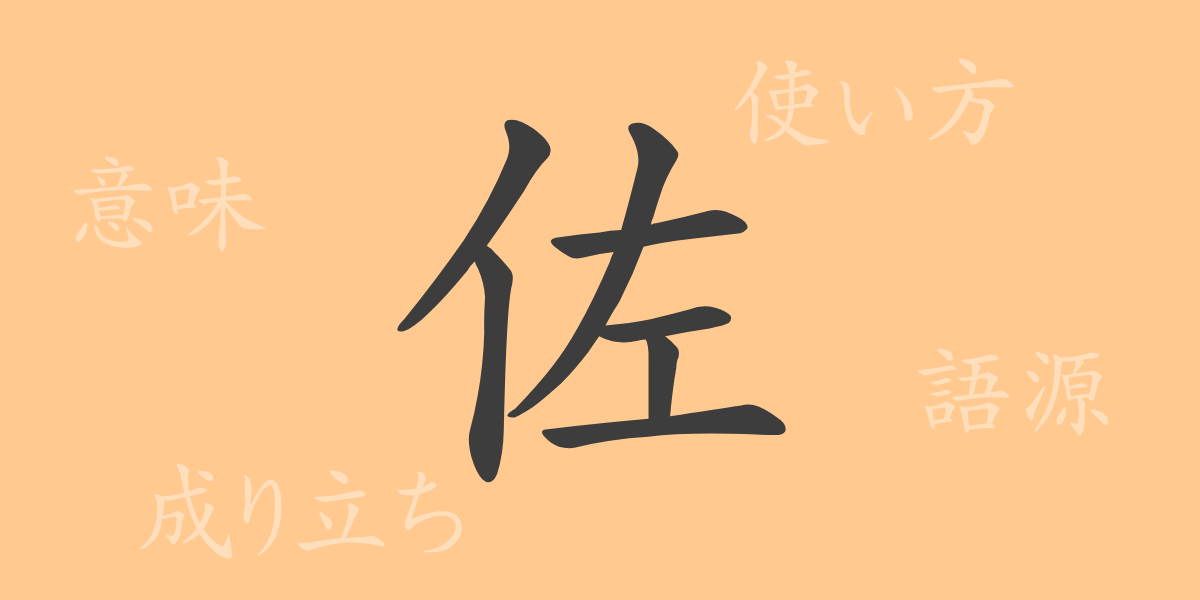Japanese culture and language are richly expressed through delicate and beautiful kanji characters. Among these, the kanji “佐(さ)” is frequently used as one of Japan’s common kanji. This article delves into the charm of the kanji “佐(さ),” exploring its origins, meanings, uses, and the idioms and expressions it forms.
Origins of 佐(さ)
The kanji “佐(さ)” is a character that originated from ancient China. It combines the radical “亻(にんべん)” which represents “person,” with “左(ひだり),” which is a pictogram for “hand.” Originally, “左(ひだり)” depicted a hand, and “佐(さ)” came to mean “to assist” or “to help by providing a hand.” This combination symbolizes the act of supporting or helping others.
Meaning and Usage of 佐(さ)
The kanji “佐(さ)” primarily means “to assist” or “to support.” Words and expressions containing this character often convey nuances of supporting or functioning in conjunction with something else. For instance, in the political context, “佐官(さかん)” refers to officers who assist high-ranking officials. Although it is not commonly used in everyday conversation, it is frequently found in names and place names.
Readings, Stroke Count, and Radical of 佐(さ)
Let’s look at the readings, stroke count, and radical of the kanji “佐(さ).”
- Readings: The on’yomi (音読み) is “サ(sa),” and the kun’yomi (訓読み) is “すける(sukeru).”
- Stroke count: “佐(さ)” is composed of 7 strokes.
- Radical: The radical is “亻(にんべん),” which signifies “person.”
Idioms, Phrases, and Proverbs Using 佐(さ)
There are various idioms, phrases, and proverbs that include “佐(さ).” Here are some examples:
- 佐幕派(さばくは): A political faction during the late Edo period that supported the shogunate.
- 佐渡送り(さどおくり): Originally referring to exiling criminals to Sado Island during the Edo period, it now means banishing someone to a distant place.
- 副佐(ふくさ): Refers to an assistant or aide.
Conclusion on 佐(さ)
The kanji “佐(さ)” holds a wealth of meanings and uses beyond its simple form. From its basic meaning of assisting or supporting, it has evolved into numerous words and expressions, playing a significant role in Japan’s history and culture. Frequently used in place names and personal names, “佐(さ)” is a familiar and important character for the Japanese people. Through this exploration, we hope readers have gained a deeper understanding and appreciation for the kanji “佐(さ).”

























